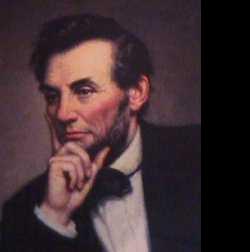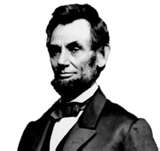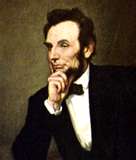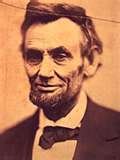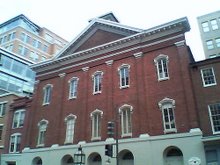

"...to a nation far more divided than ours, we are not enemies but friends. Though passion may have strained, it must not break our bonds of affection."
Nice to hear that Lincoln is alive and well in Presidential acceptance speeches. And this is just the beginning. Not only is Obama's Inauguration theme, "A New Birth of Freedom," taken from a line in Lincoln's Gettysburg Address, but his entire leadership style seems to be informed by Lincoln's political wisdom.
It is no secret that Doris Kearns Goodwin's book about Lincoln, "A Team of Rivals," has inspired his method of choosing a cabinet, from retaining Robert Gates to considering Hillary Clinton. His preference for strong personalities with dissimilar views says as much about his own security among opposition as it does about his admiration of a man who made similar bold choices -- a man from his own home state of Illinois.
Goodwin, who met with Obama about her book, recently told NEWSWEEK, "I think he's got a temperamental set of qualities that have some resemblance to Lincoln's emotional intelligence."
If so, he is positioned for a time with as much conflict as the Civil War offered Lincoln. A rising star in his own right, he will need all the considerable gifts he has been given to navigate the economic and political minefields ahead.
But then, this is what great men are raised up to do.

















